A campaign by Mennonites in the Democratic Republic of Congo to use literacy education as a tool for evangelization is bringing hope to educators and learners alike—and unearthing tales of suffering and repression.
In its first two years of operation, the Congo Mennonite Literacy Project, initiated by the leaders of women’s groups, has trained about 200 educators who are reaching more than 3,000 illiterate adults of all ages, the majority of them women.
Word-of-mouth publicity has stirred such a demand that the program has shifted to a train-the-trainers phase. After a July workshop in Kinshasa, 16 of the experienced teachers received certification to become trainers of other teachers and are now preparing teacher-training sessions in their regions.
The demand follows violent conflicts in the nation, both longstanding and recent. It was the plight of educators like Yamba Katembue Patrice that prompted program leaders and their North American partner, Africa Inter-Mennonite Mission, to launch this new phase.
Yamba, a primary school teacher, described what happened when he returned to his hometown in Eastern Kasai after being trained as an adult literacy educator in March 2018.
“As soon as I returned to Kamiji,” he said in a July 2019 interview, “I made an announcement in church to alert illiterate persons. . . . I myself also passed the announcement about this project to our local radio-television station, Mont-Carmel. As a result, 242 people registered.”
Rather than turning people away, Yamba divided them into three classes.
“I hold two classes in the morning, from 6 to 7 and from 7 to 8,” he said. “One of the classes is held in the afternoon. Each meets three times a week. My principal, who is also a member of my church, allows me to favour my literacy classes, because, according to him, this project contributes to the development of the Mennonite church in particular and the Democratic Republic of Congo in general.”
The project took on additional importance when many other chiefs began asking him to start classes in their villages.
“In most of these villages, there are no Mennonite churches,” Yamba said. Half a dozen villages are waiting for the teachers he planned to train after the recent Kinshasa workshop.
There is currently no Mennonite church building in Kamiji, where he teaches. “Our church was burned down by the Kamwena-Nsapu militias,” he said. “We hold these classes in the temporary shelter that we built after this evil destruction of our church.”
Reign of terror
The Kamwena-Nsapu conflicts took the lives of many in the Kasai region in 2016-17.
Yamba described how Kamiji came under the influence of the Kamwena-Nsapu rebels, who used decapitation and witchcraft as instruments of terror when local traditional chiefs appealed to the group for support against a corrupt administrator.
“One night we were awakened suddenly because the followers of Kamwena-Nsapu had arrived at Kamiji,” he said. “We fled that same night, all my family and other Mennonite families of Kamiji. We walked to Mwene-Ditu [about 40 miles away], where we took refuge with the Mennonites of Mwene-Ditu.
“We stayed there four months, March to June 2016. They were people of goodwill. The Mennonites of Mwene-Ditu took pity on us and fed us. We had a very, very hard time.”
Those who stayed in Kamiji lived with the followers of Kamwena-Nsapu, who established themselves there.
“The camp of Kamwena-Nsapu programmed every Friday as a day of youth and prayers. The leader gave the order that all the habitants of Kamiji, Christian or not, must submit to the order to pray to their mysterious gods,” Yamba said.
“If you refuse, you are beheaded on the spot and your flesh is dried to be fed to new recruits. Most of the Christians, especially the pastors of the [independent] Church of the Awakening, were decapitated because they refused to bow to the mysterious gods of Kamwena-Nsapu.”
A small house of straw
As for the Mennonites and other families who were refugees in Mwene-Ditu, “the Kamwena-Nsapu burned our houses, our churches and everything that belonged to us. Personally, I lost everything,” Yamba said.
“On my return to Kamiji with my family I built a small house of straw. I still live in this little house in bad conditions with my family. I am unable, without financial means, to build a house of permanent materials.
“Despite our suffering,” he said, “we will remain Mennonites all our lives.”
He expressed gratitude to the initiators of the literacy project, in which he, like other educators, serves as a volunteer. “Note also that through this project, all my participants have accepted Jesus Christ as Lord and Saviour and now understand the Word of God,” he said. “Most of them have become members of our congregation.”
American Nancy Myers volunteers as a liaison to the Congo Mennonite Literacy Project for Africa Inter-Mennonite Mission. Charlie Malembe is a Mennonite journalist in Kinshasa. With files from Africa Inter-Mennonite Mission.


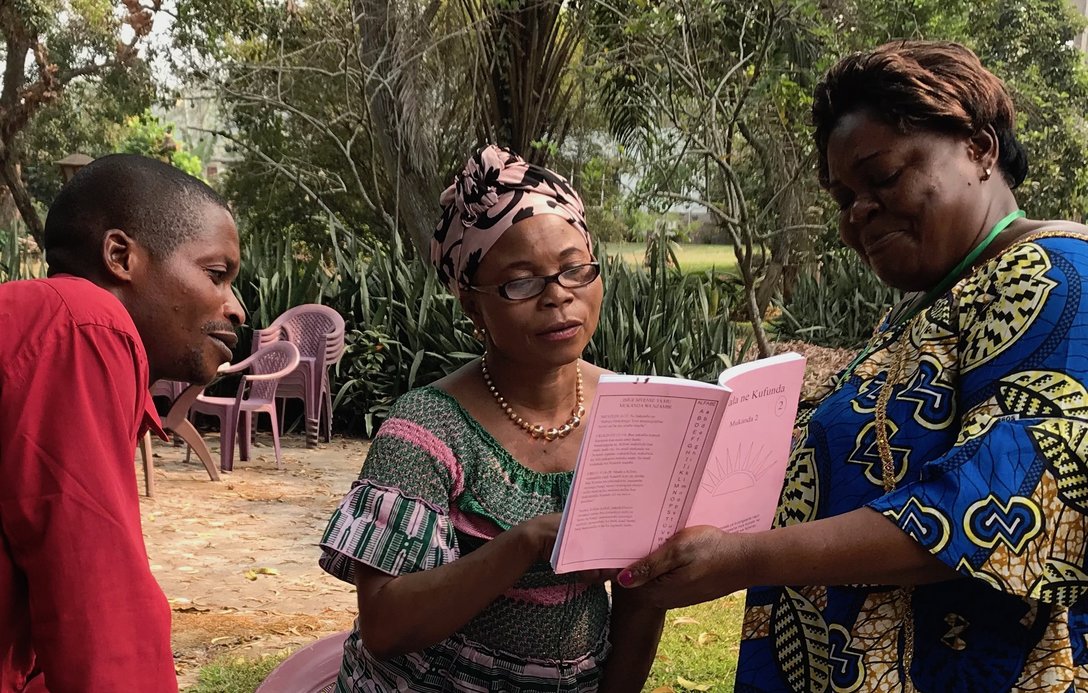

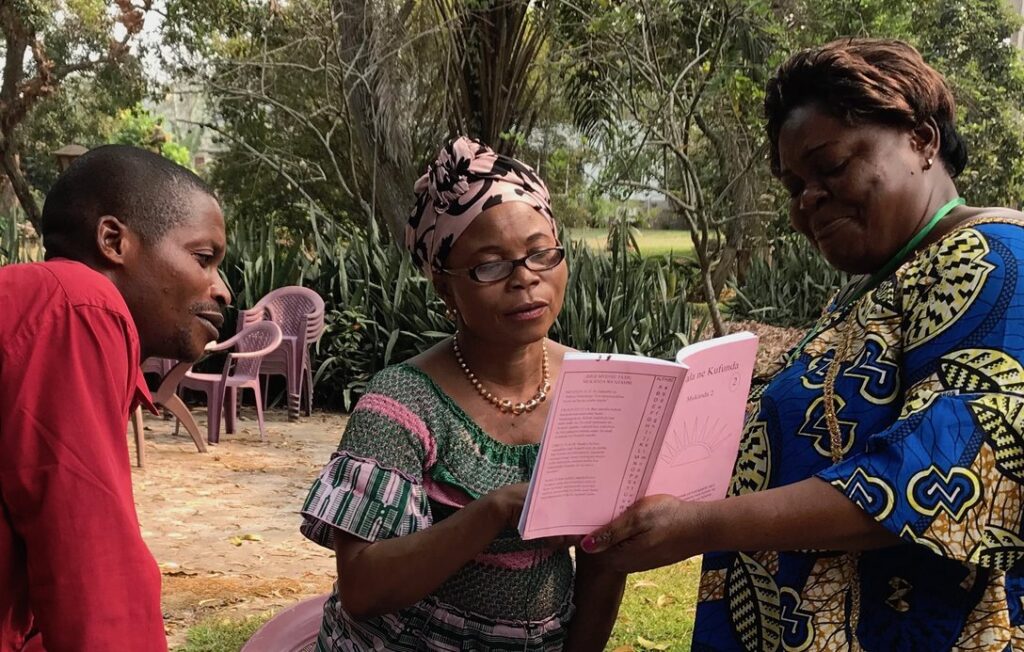
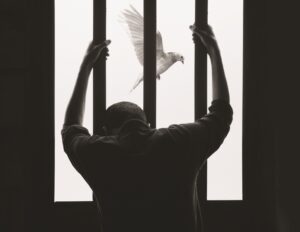
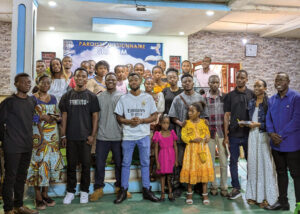
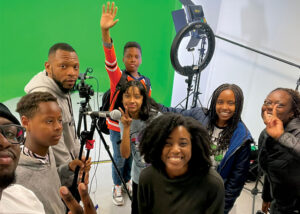

Leave a Reply
You must be logged in to post a comment.